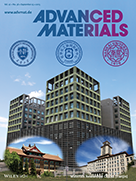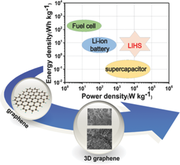--- 陈永胜教授课题组 ---

论文作者:Yanfeng Ma, Huicong Chang, Miao Zhang, Yongsheng Chen
发表期刊:ADV Mater, 2015, 27: 5296-5308 [ pdf ]
Lithium-ion hybrid supercapacitors (LIHSs), also called Li-ion capacitors, have attracted much attention due to the combination of the rapid charge–discharge and long cycle life of supercapacitors and the high energy-storage capacity of lithium-ion batteries. Thus, LIHSs are expected to become the ultimate power source for hybrid and all-electric vehicles in the near future. As an electrode material, graphene has many advantages, including high surface area and porous structure, high electric conductivity, and high chemical and thermal stability, etc. Compared with other electrode materials, such as activated carbon, graphite, and metal oxides, graphene-based materials with 3D open frameworks show higher effective specific surface area, better control of channels, and higher conductivity, which make them better candidates for LIHS applications. Here, the latest advances in electrode materials for LIHSs are briefly summarized, with an emphasis on graphene-based electrode materials (including 3D graphene networks) for LIHS applications. An outlook is also presented to highlight some future directions.

